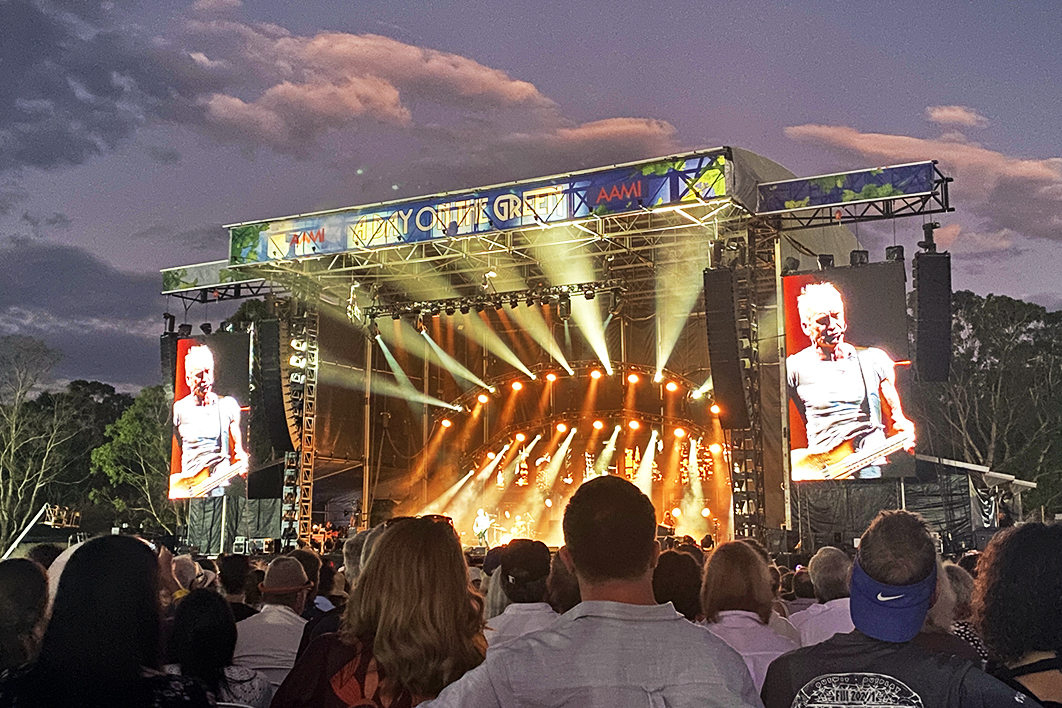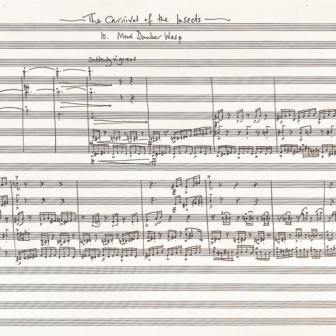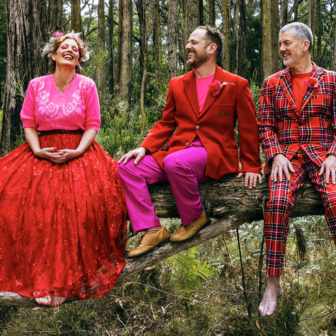“Hullo, Bowral!” shouts Sting from the stage. It’s the final leg of an Australian tour and it’s brought him to a vineyard in the NSW Southern Highlands.
He doesn’t seem as delighted to be among us as James Reyne had been an hour earlier, and his between-songs patter sounds rehearsed, but the band is tight, his distinctive high tenor is only slightly raspy and he can still hit those top notes, if not always in the middle. The bottom notes are completely gone, but they were never his strength: odd for a bass player, as my wife remarks. In “Fields of Gold,” for example, we can’t hear the word “gold.” My first thought is that the gap at the end of the line is emotional choking; but no, the big screens at the side of the stage show him singing the word, it’s just that no sound is coming out. (It’s the lowest note of the song, though only a D.)
Without a doubt it’s the voice that we’re here for. No one has ever really sounded like Sting, especially when he’s navigating the loping melodies that characterise “Message in a Bottle” (his opener), “Roxanne” (his first encore), “Walking on the Moon” — the “giant steps” of the lyric matched by those of the melodic line — “Every Little Thing She Does Is Magic” and “Every Step You Take.” (“Don’t Stand So Close to Me” seems to have been retired.)
Sting is seventy-one, and his audience looks around the same age. I have never seen so many portaloos in one place. Eschewing, for the most part, songs from the height of his solo fame in the late 1980s (there’s nothing on the set list from The Dream of Blue Turtles and only a couple of songs from Nothing Like the Sun) he sticks to the Police’s back catalogue and more recent songs. Everyone in the audience knows the former, but there are plenty of diehard fans who’ve followed every step he’s taken since. “Oh I love this one!” says a woman near me as the band strikes up a song I’ve never heard in my life.
The songs are good, especially the perfect pop of the Police, that pared-back blend of post-punk and reggae. And while we could have stayed home and listened to the records — the songs would have been better sung and the sound cleaner — we’d have missed something that was only going on in that Southern Highlands paddock.
Was it nostalgia? Perhaps. It was certainly the pleasure of familiarity. The crowd listened patiently to a couple of songs from his newest album, but roared its approval at “So Lonely.”
I often wonder — and have written here before — about the place of music in our lives, and how a pop song summons a memory in the way that a classical piece or jazz album generally doesn’t, at least not for me. I can tell you, for instance, the first time I heard Brahms’s piano quintet; I recall buying my first recording of The Rite of Spring; I know who recommended I listen to Oliver Nelson’s Blues and the Abstract Truth. But the sound of the music doesn’t evoke those memories. Familiar pop music, like Proust’s madeleine, brings the past rushing back, and a single bite will do it.
Play me a few seconds of “Message in a Bottle” and I can see the interior of the flat I lived in at the time; I can smell its dampness. And in that Bowral field, I was surrounded by thousands of other people simultaneously experiencing their own musical madeleines. I felt I was sharing something with them, but I didn’t feel I was sharing much with Sting.
The last time I attended an outdoor rock concert (as opposed to a festival) was in fact back in the heyday of the Police. It was in Roundhay Park in Leeds, England, and the headliners were the Rolling Stones. As with Sting in Bowral, it was the end of a tour, they put on a fine, well-rehearsed show — Mick, I recall, was on a cherry picker out above the crowd — and they sang all their hits. One imagines the set list wouldn’t be too different today.
But it’s Joe Jackson and his band I remember best from that afternoon. They were one of the support acts and they sang the whole of the album Night and Day, which was so new it was unknown to us. There was something fresh about the music and about the performance, and the band was palpably excited to be in front of 120,000 people — they came out on stage with Polaroid cameras to take our photos. There was no barrier between the performers and the listeners. You might say, there was no act.
Something similar happened with James Reyne in Bowral. He was in spectacularly good voice as he worked his way through Australian Crawl’s hits, and when he reached “Reckless” the crowd at first fell silent, then, bit by bit, joined in, the song reaching a rousing and extended climax. No one wanted it to stop. Round and round it went: “Throw down your guns / Don’t be so reckless.”
Reyne must have sung this song a lot over the last four decades, though never in that field, never to that audience — never with that audience. It felt almost mystical, as though the distance between the ticket holders and the stage had vanished.
Perhaps if you’re as famous as Sting — or the Stones — it must always be an act; you never just sing. And perhaps you can only ever be appreciated from afar. •




